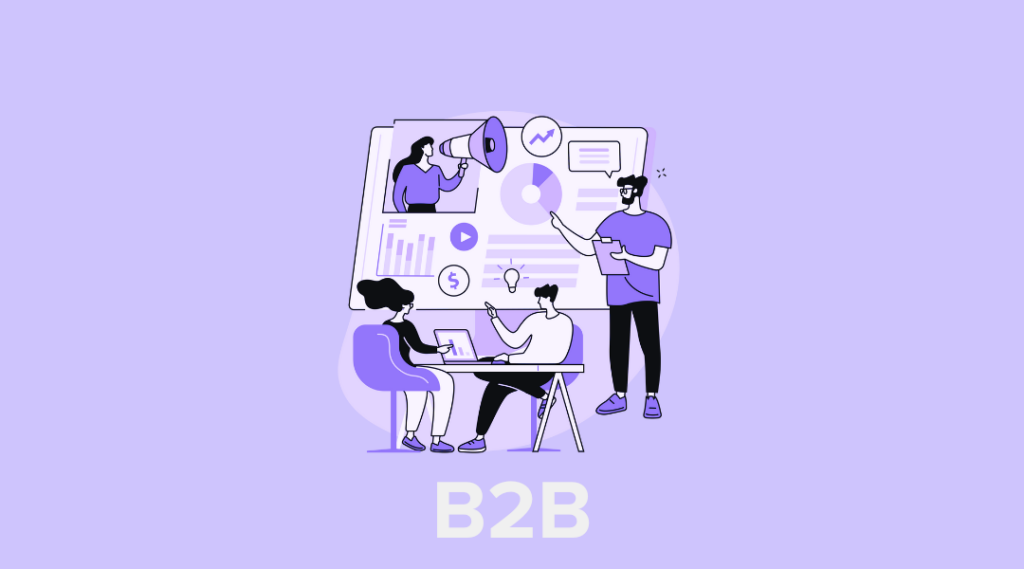Digital marketers have heralded the death of SEO for years. Each time Google releases a major algorithm update or rolls out new SERP features, the subsequent upheaval sparks conversations across the web about SEO’s imminent demise. But, throughout the volatility, SEO has remained crucial to successful digital marketing strategies.
Well-written content continues to drive visibility, brand authority, and revenue. That being said, the nature of SEO is changing, and it’s changing rapidly.
With the rise of generative AI, the user journey is transforming and challenging traditional, time-tested SEO methods. Zero-click searches are increasingly common with the proliferation of AI overviews. Consumers are turning to LLMs like ChatGPT to research and compare handpicked products instead of relying on curated lists. Users are also getting hyper-specific with their searches, opting for heavily modified queries like “mens black lightweight gym shorts with pockets under $50” rather than just “gym shorts.”
So, no. SEO is not dead in 2025, nor is it an archaic practice soon to be relegated to history. However, SEO is undeniably evolving, and brands must elevate their strategies to remain relevant and effective.
Why SEO matters in 2025
While your Google Analytics might say otherwise, people are searching more than ever and in more places than ever. Optimizing content for maximized SERP rankings and LLM visibility is as important as ever for your brand’s discoverability.
2024 was a year of seismic shake-ups in the SEO industry. Major Google updates dropped in March and November, spiking ranking volatility. Across industries, brands reckoned with diminishing traffic, driven in large part by the expansion of AI overviews on SERPs. Consumer search behavior also changed, as more users turned to ChatGPT for tasks like product comparison or information research. Those in the SEO and marketing professions reported job hunting felt more difficult, with many blaming heightened competition brought about by AI tools.
All of these shifts once again raise the question of SEO’s relevancy. In an internet defined by rapid development and unpredictability, is there still a place for SEO strategy and thoughtful, long-form content?
Yes. Absolutely. Flexible, innovative SEO strategies are required to rank and convert online, especially in a climate of uncertainty. Let’s explore why SEO is still crucial to any marketing endeavor.
1. People are searching more than ever, even if they aren’t clicking as much.
As of March 2025, SparkToro and Datos estimate that Google executes over 14 billion searches per day, a stunning 21.64% increase in yearly growth. In a rare peek behind the curtain, Google itself revealed that it processed “over 5 trillion” queries in 2024. The last time it offered similar insight was in 2016 when it announced it was processing over 2 trillion annual search queries.
Google remains the dominant gateway of information on the internet, with approximately 83.54% of all searches beginning on the platform. YouTube and ChatGPT follow, at 6.79% and 4.33% respectively.
This massive amount of search traffic reveals how the fundamentals of SEO remain true for brands and businesses alike. Visibility on Google is essential to being discovered online.
However, clicks have undeniably declined, as Google continues to introduce on-page SERP features like Featured Snippets, People Also Ask, and AI overviews. A 2024 study found as many as 60% of searches end without a click. Those numbers are familiar to any marketer in 2025. Zero-click searches dominate any conversation about the death of SEO.
As AI overviews steadily spread across SERPs, clicks will continue to drop off dramatically. Seer Interactive’s study found that organic CTRs dropped about 70% when an AI overview was present. Paid advertising also took a blow, diving 9.87% when combined with AI overviews.
Websites across all industries have faced reduced click-through rates and struggled to regain traffic in the aftermath of SERP’s AI implementation. But there’s a slight silver lining there too. The same study by Seer found that when a website’s content was sourced in an AI snippet, clicks to that site increased 1.08%. Achieving that top-of-the-page real estate is all the more critical and competitive.
Stay visible with SEO:
Zero-click searches aren’t disappearing anytime soon, but people are searching in greater volumes than we’ve ever seen before. To capitalize on this new iteration of search traffic, you need to create content that incentivizes the user to explore further.
Inspire users to dig deeper, going beyond the snippet or AI overview and exploring the full breadth of your content. This can’t be done with shallow blog posts; this requires thoughtful, expertly crafted content that hooks users enough to pull them off the SERP and into your site.
Content strategy has always been a cornerstone of SEO. But, claiming the number one spot on Google’s rankings to garner clicks is no longer a competitive strategy in isolation. Leveraging AI overviews and maximizing their potential for deeper user engagement is necessary for brands to remain visible and profitable online.
2. Your SERP ranking impacts your AI visibility.
Preliminary research from ProRankTracker indicates that your ranking on Google and Bing directly correlates to your visibility in AI responses. Of course, this comes with caveats. ChatGPT, Gemini, Claude, and Perplexity pull from content across the internet and most analytics tracking tools are still in the nascent stages of determining AI attribution. But, this data points to the ongoing value of strong SEO in the age of artificial intelligence. Strong visibility on SERPs is correlated with boosted visibility in AI conversations.
Rank higher with SEO:
Robust, well-researched, human-generated content is the lifeblood of LLMs. They require fresh, new content to train themselves. Ensuring your site is full of high-ranking, well-researched, uniquely valuable material not only boosts you on SERPS, but early data indicates that it increases the likelihood that your brands and products will come up in ChatGPT and Gemini recommendations.
AI visibility is also a future-proofing strategy in an era defined by unpredictability. Even though ChatGPT accounts for less than 5% of searches at the moment, its popularity is growing, especially among a younger generation of searchers. As the technology continues to become mainstream and easily accessible, the need for generative AI optimization will only increase.
3. Context matters more than keywords.
In 2025, content requires a deeper understanding of search intent. Across surfaces, users’ queries are becoming more sophisticated. People have shifted away from simple keywords to complex, conversational language in their searches.
The entire internet is only becoming more personalized as search engines and social media algorithms lean into individualized, niche recommendations based on user data. LLMs enable a new level of deeply customizable search behavior that users can tweak and train to match their highly specific desires.
Advancements in Natural Language Processing (NLP) also mean that search engines are better at understanding the nature of search intent and more discerning about the content they serve their users. Long gone are the days of keyword stuffing as a strategy for currying favor with Google. As users input increasingly complex search queries, targeting exact keywords and phrases alone isn’t enough to guarantee ranking.
Elevate your content with SEO:
Context requires nuance, detail, and expertise. Google always wanted content that adds value, and it’s only getting better at identifying it. This degree of nuance cannot be captured by AI writing assistants (though they can certainly help - more on that below). Content needs strategic intent, expertise, and human guidance. AI writing tools cannot replicate the wealth of industry knowledge possessed by a subject matter expert (SME) or the lived experience of an over-pronating runner who’s personally tested out a dozen different pairs of shoes.
Writers bring a liveliness and human connection that cannot be replicated by artificial intelligence. As tempting as it may be to use AI to pump out a batch of blogs to throw onto your site, this shallow content lacks the contextual specificity required to rank content and increase online discoverability long-term. In the world of SEO, quick, meteoric rises are artificial wins and are predictably followed by dramatic plummets. Any scheme to scale traffic quickly will almost certainly see just as speedy of a decline.
Learn more: Branded vs. Non-Branded Keywords: Which Should You Prioritize for Your Website?
4. LLMs are driving referral traffic. Content can train AI how to talk about your brand.
LLM referral traffic is exploding. Between Q3 and Q4 of 2024, LLM referral traffic saw an 800% increase. As AI continues to reshape how users interact with search, shopping, and content, these numbers will only continue to expand. Building brand authority and subject matter expertise are already staples of the SEO industry, and LLMs are only advancing their importance.
Unfortunately, the prompts that drive these referrals still remain shrouded in mystery. Traditional keyword and attribution tracking doesn’t give brands enough context to understand when and how LLMs are discussing them. Content marketers need to engage with AI to discover how they are perceived by these models, and they need to do so frequently. LLMs have far greater day-to-day variance than traditional SERP pages and simple phrasing adjustments can alter the results of a query.
Train AI models with SEO:
LLM referral traffic is an enormous opportunity for growth. Through content, you have the power to influence how LLMs talk about your brand. Write listicles comparing your brand to your competitors. Ask ChatGPT what it knows about your brand identity and your distinguishing strengths. When it fails to mention you in a response you’d like visibility in, ask it why your brand was excluded. Armed with this knowledge, craft content to close these gaps and increase the likelihood of referral traffic.
A well-structured SEO strategy will build this into a content plan and help you target AI query responses. In the face of declining clicks, leveraging alternative means of traffic accumulation is vital to your site’s success.
5. AI tools can elevate your output’s quality.
When AI writing assistants were initially unveiled, they were met with a horrified response from many content writers. Some saw them as harbingers of doom for their careers, imagining a bleak future where the internet was full of nothing but chatbot chatter. The reality is much more measured.
AI tools offer SEOs the opportunity to brainstorm content ideas, refine outlines, and edit drafts. They are no replacement for human writers, but in the right hands, they can enhance productivity and elevate quality. AI assistance can be responsibly used to elevate your brand’s content output and ensure that your content seizes any opportunity for greater detail.
Increase productivity with SEO:
AI writing assistants are tools, and tools are only useful in hands that know how to use them. Learning how to leverage them is not admitting defeat or surrendering to an AI-written future. In fact, it’s accessing a competitive advantage. AI writing assistants will become more refined and effective as the models mature. The key is strategically maximizing their value and adapting your workflow to encompass emerging technologies. AI tools are also frequently imprecise and need human oversight to ensure accuracy, especially when tackling technical subject matter.
6. Search engines still really care about technical SEO
It does not matter how elegantly written and thoughtfully researched your content is if the page takes forever to load. Google is deeply invested in UX, prioritizing security, seamless mobile functionality, visual stability, fast loading speeds, and crawlability. Search engines want the entire user journey optimized, not just the content.
In the age of LLMs, site crawlability is paramount to AI visibility. Many sites unknowingly block LLM crawlers, excluding them from AI overviews and valuable referral traffic. Performing regular technical SEO audits checks your site’s performance and helps you avoid penalization and maximize your discoverability.
Audit your site’s performance with SEO:
Technical SEO isn’t negotiable. Core web vitals, fast responsiveness and interactivity, site architecture, and page speeds are fundamental to ranking in Google, and any visibility across LLMs. Ensuring your site’s backend is designed to support the rich content you’re publishing is essential.
Learn more: How to do an SEO Audit and Improve Your Rankings
7. Search optimization is everywhere.
From DIY tutorials on YouTube and TikTok to product reviews on Reddit and Amazon, users are scouring all corners of the internet for information and services. While Google remains the undisputed king of search, in 2025, SEO is about search optimization everywhere.
Search engines, marketplaces, social media, generative AI - each channel provides brands with unique opportunities to attract new customers and cement their status as industry authorities. Brands must optimize for multi-platform SEO, tailoring their content to adapt to the algorithmic whims, media formats, and stylistic preferences of each channel.
For some, this diversification means churning out less overall output per channel, but broader distribution across surfaces to increase visibility.
Why you need SEO in 2025:
Your brand should be discoverable wherever and whenever possible. Google is no longer the only place where users will discover your products. Achieving this requires intentional expansion of search optimization efforts and cohesive content calendars. While this is an expansion of what’s typically considered “SEO,” it's a vital strategic adaptation in an era where user journeys are becoming more and more intricate.
SEO isn’t dying - it’s transforming (and it will continue to transform).
SEO has suffered losses before: keyword stuffing, backlink farming, and high-volume outputs of thinly researched content are all casualties of SEO’s evolution and sophistication. SEO strategists face new challenges as AI overviews cannibalize clicks, LLMs expand in popularity and AI writing tools disrupt marketing workflows. Flexibility and transformation is a necessary part of progress.
To remain relevant in the current online realm, SEOs must diversify their skills beyond good content writing and keyword research. Modern SEO requires innovative strategy, nimble adjustments, and investment in exploring the opportunities presented by changing user behavior and generative AI.
Lean into the future of SEO with tiptop
At tiptop, we help brands get discovered online. Our full-service SEO offering combines content writing, technical SEO, on-page optimization, and off-page authority building to drive scalable, sustainable growth.
Our writers and strategists create tactical roadmaps and engaging content designed to expand your visibility, enforce your brand authority, and generate increased revenue. From attracting new customers for D2C ecommerce companies to landing B2B clients lucrative contracts, we have in-depth experience helping clients grow their businesses through leveraging content.
We also offer technical SEO services, auditing and analyzing your site’s performance and assisting with traffic preservation through site migrations. Our technical SEO services ensure your website’s foundation can support your growth and position your content to rank favorably.
Our data-driven approach to SEO marketing helps clients navigate the challenges of running an online business in a time marked by rapid transformation and upheaval. Let’s talk and explore how tiptop can prepare you for the future of search.
Learn more: 6 SEO Content Tips to Help You Win Online




